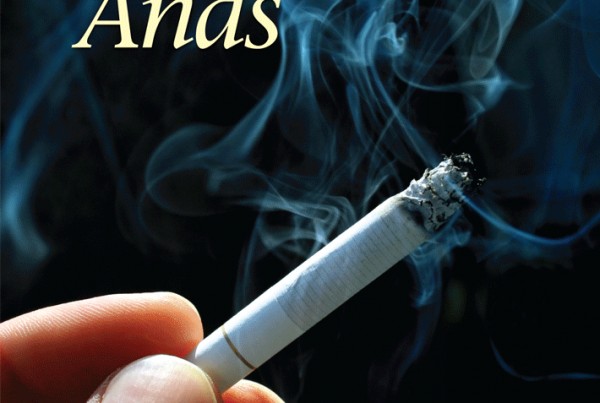As many as 50 percent of casino patrons are smokers – about double the percentage in the United States at large. And although a smoky haze and stinky air used to be part of the casino ambience, today’s gaming customers and employees, even those who are themselves smokers, expect better. Casinos large and small are dipping into their pockets to make sure their customer and employees get that April-fresh scent.
Deep-pocket properties, such as Las Vegas megaresorts, can afford to install systems that bring in 100 percent outside air to lessen tobacco smoke and odor problems, an option that is out of the question for smaller properties because of the astronomical energy cost.
Those with more modest budgets can achieve nice results by retrofitting purification systems into their HVAC systems, re-engineering air distribution, pumping in saturated oxygen, or ozone, to neutralize odors, and installing self-contained units in specific problem areas. Some casinos are even squirting fragrances in the air, a solution at which many experts turn up their noses.
The new, 135,000 square foot Agua Caliente Casino in Rancho Mirage, Calif., treats its air with Casino Air visible smoke and odor control technology. Like all tribal properties, the casino, owned by the Agua Caliente Band of Cahuilla Indians, is exempt from the state’s tough indoor smoking ban.
“We’re really pleased. We have a nonsmoking area, but you can hardly differentiate between the two,” said Ken Kettler, Agua Caliente’s general manager.
Fighting indoor air pollution in smoky environments requires a two-pronged approach. Visible smoke, which is made up of tiny dust particles, has to be removed with technology that retrofits into the HVAC system and boosts its ability to remove very small particles and/or with self-contained units in specific problem areas.
Then a far more insidious problem must be addressed, one that dust filters can’t solve: volatile organic compounds. These are the gases that can make you sick, burn your eyes, cause cancer and stink up your clothes. No wonder. The list of toxic elements in cigarette smoke is extensive: 3,200 gases and 4,700 chemicals. The odor problem is particularly difficult in casinos because of the high percentage of smoking customers and 24/7 operation.
The odor-zapping solution favored by Casino Air and pioneered by Clean Air Systems for the gaming environment is controlled injection of ozone, an ion of oxygen with an extra oxygen atom (O3). Because ozone is constantly trying to shed its third oxygen atom, it’s a powerful oxidizing agent which instantly breaks down the less complex odor molecules and greatly reduces the more complex VOC molecules too.
Casino Air noted that ozone can also combat bacteria and viruses that might be carried through the air or linger on surfaces. The result is a “fresh, crisp smell similar to the outside air after an electrical storm.”
Casino Air also designed an air-purification retrofit at the Agua Caliente Band of Cahuilla Indians’ original Spa Casino in Palm Springs. The system uses ozone to kill the odors, and a combination of integrated filtration-enhancing technology in the air-conditioning system and self-contained air cleaners in problem areas in the converted banquet hall to eliminate visible smoke. The owners were so impressed they incorporated Casino Air technology in their new Agua Caliente Casino, which opened in April.
Casino Air emphasizes that safety comes first with his company’s ozone technology, with integrated monitors ensuring that the lower of the two federal standards for ozone exposure (50 parts per billion) can’t possibly be exceeded. Public health officials warn that ozone is a lung irritant which at higher levels (1000 ppb and up) can cause respiratory distress.
Designing Solutions
The mechanical engineering community works closely with architects and interior designers to make sure air is distributed into a space and exhausted properly. That can sometimes require more aggressive and costly work, such as new exhaust fans, duct work, adding tonnage to the air conditioning system – even tearing down a wall or two.
But it pays off, said Rob Finnegan of Las Vegas-based FEA associates, whose clients include the Beau Rivage hotel-casino in Biloxi, Miss., and Sunset Station hotel-casino in Henderson, Nev.
“We honestly believe that gaming gets a little more vigorous” with better indoor air quality, Finnegan said.
Finnegan said he makes sure the smoke-laden air exits the casino high enough so it doesn’t mix with the fresh air entering a room at a lower level. To make sure as much smoke dust and particulate matter as possible is cleaned out of the air, Finnegan recommends electronic filtration in addition to conventional filters.
Casino Air agrees with Finnegan about the importance of the air-conditioning system. If the HVAC system is undersized or poorly designed, it’s impossible to upgrade the indoor air quality to a point where the owner feels we’re delivering value. The optimum situation is where our clients ask us to work with their mechanical engineer to develop the sizing and layout of the HVAC in new construction. In retrofits, there are almost always changes to be made concurrent to the installation of our air purification technology to optimize indoor air quality.
Pleasant air will keep customers at the gaming tables, slot machines and restaurant and retail areas longer, they say. Estimates are that the loss of just one player per day can cost a casino $20,000 a year. Studies show that only about five percent of customers who are offended by something in your business will speak up, so one complaint about smoke smell means up to 20 customers have been offended.
“People want clean air to breathe when they’re in here,” said Glen Barrow, director of facilities at Ruidoso (N.M.) Downs Racetrack and the adjoining Billy the Kidd Casino, another Casino Air client.
In addition, casino workers, attuned to the dangers of second-hand smoke, are filing lawsuits against employers in connection with health problems linked to air quality in the workplace.
While many casinos, including the Agua Caliente and Mohegan Sun in Uncasville, Conn., have opened nonsmoking rooms in response to requests from tobacco-sensitive customers, Barrow said the air quality at the two-year-old casino is pleasant enough that the suggestion has not been raised at his property.
Air purification technology can also save money when it comes to clean-up and redecorating costs. Tar and nicotine end up all over the walls, on tables, floors, mirrors and other finish materials. By removing these pollutants from the air inside the air-conditioning system, you’re saving money on cleaning, redecorating and remodeling, as well as protecting the HVAC system and saving on energy costs by reducing the pollutant load on cooling coils.
Casino Journal February 1999




